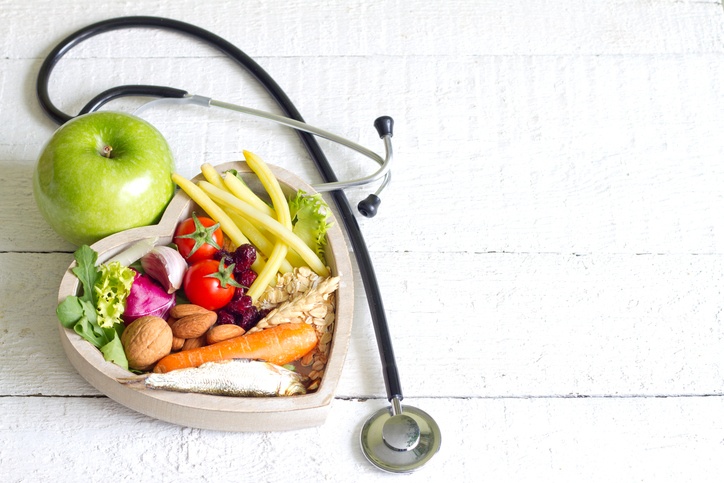How to Maintain a Healthy Diet as a Physician

Physicians don’t get sick.
That’s the common refrain propagated by healthcare professionals across the country, according to a 2012 article published in the British Columbia Medical Journal that examined the lifestyle and preventive health behaviors among physicians.
And, not only are physicians supposed to be healthier than their patients, they’re also more independent, competitive and high achieving, according to the article’s author.
Any attention physicians pay to their own needs can only be viewed as signs of weakness.
Of course the article’s authors found that physicians are actually just like everyone else. They neglect their own health, work too much, sleep too little, don’t eat as well as they should and become ill.
That’s the bad news.
The good news is that the profession is starting to pay attention to the needs of physicians beyond the exam room, doing away with the stigma attached to programs designed to help physicians deal with physicians’ physical, mental and emotional challenges.
But physicians still have to be willing to step up and take care of themselves by exercising, sleeping, caring for themselves and eating right. While it can be difficult to find time to work out and sleep, it’s relatively easy to maintain a healthy diet.
Here’s a look at three easy ways to maintain a healthy diet while succeeding in the practice of medicine:
1) Grow your own greens
There’s something to be said for growing your own vegetables. The benefits are both intangible and tangible, according to an article published in the Harvard Health Letter.
When you grow your own food, you’re more likely to eat more vegetables, avoid fertilizers and pesticides (or at least decide which come in contact with your food) and reap the benefits of freshly picked produce, which contain more nutrients than store-bought vegetables.
It’s never too soon to start planning your garden–and you can start planting seeds indoors during the winter months before transplanting them to your garden after the last frost of the spring.
2) Outsource your salads
Sometimes growing your own greens simply isn’t plausible. Sometimes you need to outsource the production of your vegetables to someone who grows them locally, cares about quality and makes them available almost as soon as they are harvested.
For these moments, there is the Manchester Farmers Market.
The market draws farmers from throughout New Hampshire, who sell locally grown produce, meat and certified organic products. If you don’t have time to care for your own garden, consider stopping by the Manchester Farmers Market from 3 to 6:30 p.m. every Thursday in June, July, August, September and October.
It’s a great way to get the benefits of garden-grown vegetables without having to do the work yourself.
3) Update your Rolodex
Your Rolodex can either help or hurt you. It can either be the savior of svelte or the reason you need to invest in new clothing.
Don’t let it become the bane of your ability to maintain a healthy diet.
Instead of relying on the same old restaurants that deliver the same old fried food every day, update your Rolodex with restaurants that specialize in healthy options.
New Hampshire Magazine has published a list of the “healthiest restaurants in Manchester,” and it’s well worth checking out. You’ll find restaurants as committed to the community’s health as you are–and their menus are chock full of healthy options, void of high calories and cholesterol but rich with flavor.
Eschewing the typical “eat-and-treat” options that you’ve been fueling up on in favor of healthier options will go a long way towards helping you maintain a healthy diet.
—
Elliot Health System is passionate about helping providers with their work-life balance. Would you like to join us?
![]()
Comments are closed.



Recent Comments